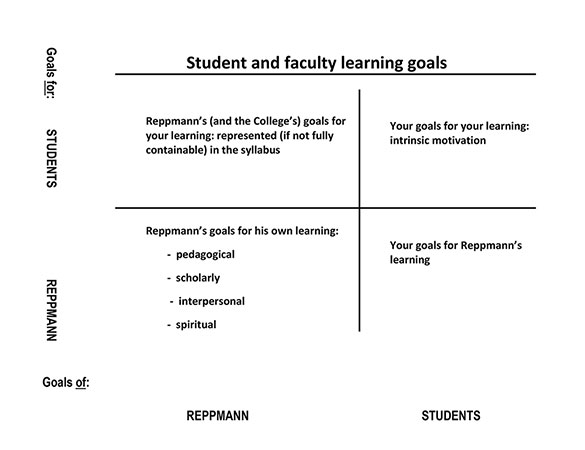Teaching can be a daunting profession even for a seasoned veteran. For new faculty members, it can feel like a daily battle just to keep your head above water. So what are some ways that new teachers can ensure not only academic success for their students, but also maintain their own emotional and personal well-being? Below are six lessons learned by two new faculty members who have managed to keep their students learning and their sanity intact:
Read more ›CURRENT ARTICLE • September 13
OTHER RECENT ARTICLES
A bevy of research establishes that student-faculty relationships are important on a number of fronts. For example, they predict persistence and completion in college. They impact the amount of effort students make in courses. They affect the development of students’ academic self-concepts. The authors of this analysis write: “There is evidence in the literature to suggest that the way students feel about their relationship to the professor may play an even larger role than many faculty know, or—perhaps—care to admit.” (p. 41)
Read More ›I’ve been thinking lately about the relationship between what we teach and how we teach. Part of that relationship is pretty obvious: If you teach something with problems to solve, you spend time problem-solving when you teach. If you teach a skill (like writing or dancing), you spend time providing examples (of good sentences or dance steps). But what I’ve been trying to sort out is something on a different level—the interaction between content, character, and teaching style.
Read More ›Encouraging faculty to participate in distance learning has been a concern since the very first days of online delivery methods, and probably before. A look through the Distance Education Report archives will show the evolving concerns about pedagogical quality, academic rigor, reputation, and other factors that faculty members have expressed concerns about.
Read More ›In 1997 Ernest Boyer identified the concept of the Scholarship of Teaching. This was the first time that TEACHING had been identified as legitimate scholarship. Over time this idea has evolved into the movement called “SoTL” or the Scholarship of Teaching and Learning. Many of us are scholarly teachers; we read the literature, plan, assess, reflect, and revise. But what makes our teaching scholarship is very different. Lee Shulman (1999) clearly delineated the difference. To be scholarship, teaching must become public, be an object of critical review and evaluation by members of one’s community, and it must be built upon and developed.
Read More ›As an instructional designer and online instructor at the Community College of Baltimore County Catonsville, Dionne Thorne has worked with many instructors as they develop their online courses. Based on this experience, she offers the following advice on the course design process:
Read More ›McGraw-Hill Education Releases Major Update to Connect Digital Learning Platform for Higher Education
McGraw-Hill Education announced a major upgrade to McGraw-Hill Connect®, the online learning platform of choice for hundreds of colleges and universities around the country. Drawing on the feedback of more than 125 instructors at 70 institutions, McGraw-Hill Education has streamlined and improved the platform’s usability, making it easier than ever for instructors to create and manage their courses in less time. Connect now offers new features like a proactive at-risk student notification tool and automation enhancements of routine classroom tasks, allowing instructors to spend less time on course administration and more time teaching. The update to Connect is one of five major digital product releases that McGraw-Hill Education has introduced in the past month.
Read More ›In the July 10, 2013 post, I shared some ideas about learning with students precipitated by an article that made an interesting distinction between “doing for” students and “learning with” students. The post generated some good responses and prompted Aron Reppmann, a philosophy professor at Trinity Christian College in Illinois, to send me an email. “I think you have your finger on something that’s often missed in debates about professors’ posture toward students: namely that to say that we learn with and from our students is not necessarily to say that we are always learning in the same way as our students.”
Read More ›Pearson, the world’s leading learning company, today announced a substantial rollout of additional MyLab & Mastering products enhanced with technology from leading adaptive learning partner Knewton. This fall semester alone, Pearson’s widely used MyLab & Mastering offerings will deliver continuously adaptive recommendations to more than 400,000 students across subject areas including biology, anatomy & physiology, chemistry, physics, finance and accounting. These are in addition to math, economics, reading and writing, which launched in the fall of 2012.
Read More ›A simple teaching technique that helps students learn; now there’s something few teachers would pass up! This particular technique involves a four-question set that gets students actively responding to the material they are studying. They analyze, reflect, relate, and question via these four prompts:
Read More ›





